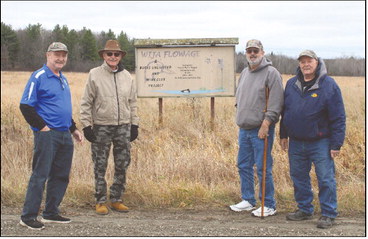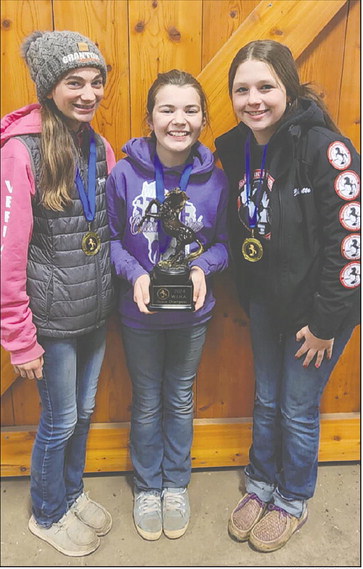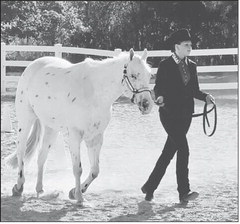An Outdoorsman‛s Journal: Life update from Selina


Hello everyone, This week I, Selina, am taking over the column to fill you all in with recent life updates and new developments in my education/professional development. Today my dad (Mark Walters) flew into Schultz Lake in Ontario, Canada; meanwhile, I am 1,400 miles to the southwest near Whiteriver, Ariz., sitting outside with a temperature of 79 but UV index of 10. I am here for the summer working for the U.S. Fish and Wildlife Service (USFWS) as a member of the Apache Trout Conservation crew, but I will get into more of those details later on.
Before I get too far ahead of myself, I want to update you all on my senior year at UW-Stevens Point and all the activities I had going on during the school year. During the last few weeks of summer 2022, the wildlife biologist out at the Necedah National Wildlife Refuge, Brad Strobel, reached out to me wondering if I would be interested in helping teach the middle school students at Necedah N-Gage Academy about natural resources and specifically stream ecology. This was truly a full circle moment for me, as the wildlife refuge has been very impactful to me and had a major influence on my decision to pursue a career in natural resources. I also spent all of my K-12 education in Necedah.
Throughout the year, I visited Necedah twice a month to deliver lessons and help students create science projects comparing a restored and ditched portion of the Little Yellow River that flows through the refuge. Students were in the Little Yellow River starting in late March, and as you could imagine there were many filled waders (including mine) and the water was COLD! All of the students were troopers though. There were few complaints, but many memories made by all.
This year I was the vice president of our student subunit of the American Fisheries Society (AFS). With this role, I organized the speakers for our weekly meetings, which were made up of many fish biologists from Wisconsin and also the rest of the U.S. Perhaps most memorable was one from the Grand Canyon who said he grew up in Wisconsin and spent a lot of time in Necedah fishing on Castle Rock Lake. AFS also presents many unique opportunities like helping work up lake sturgeon when they spawn in the spring, broomball and attending the Wisconsin AFS Conference, where we got to hear about fisheries research happening throughout the state. For the second year in a row, I participated in undergraduate research at UWSP. This year my project focused on the influence of riparian habitat (area between fully aquatic and terrestrial habitat) on brook trout prey availability, diet and body condition. Essentially, I was looking to see if land use had any effect on the bugs available for brook trout to eat, what they were actually eating and in turn the size of brook trout in that stretch of stream. The work associated with this project lasted the duration of the year with fieldwork beginning in the fall, processing samples in the lab throughout the fall and winter, and creating my actual project during the winter and spring. Research was initially something I was very intimidated by and did not think I would be able to complete, but it has led to some of my most impactful learning experiences and I am very grateful to have had the opportunities to do it.
UWSP and the Aquatic Biomonitoring Lab (ABL) have turned me into quite the aquatic bug nerd, and I continued my job at the ABL this last year and was even promoted to quality control officer. Jeff Dimick runs the ABL and has been a huge mentor during my time at UWSP. He may have even turned me into a bit of a “crazy bug lady,” as a dream career for me would involve aquatic macroinvertebrates, though they are not easy to find.
For right now though, I am (mostly) out of the school mindset and enjoying my time working down in Arizona! As I said earlier, I am working for the USFWS as a part of the Apache Trout Conservation crew. Apache trout are native to the White Mountains of Arizona and have a very small range. Non-native brook and brown trout outcompete and prey on Apache trout, and they are currently listed as threatened on the Endangered Species List. As a part of the crew it is my job to electrofish some of the streams where they are present to perform population surveys and remove non-native species (this means sending the brook and brown trout to their Maker).
I’m running low on room, but long story short: this academic year was the most challenging but rewarding year yet, and now I am down in Arizona climbing mountains in the snow (it has been cooler here than it has been in Wisconsin most of the time I’ve been here) to go and work with a threatened fish species!
I will write again at the end of summer to fill you in with more details about my job! Selina
Mark Walters





